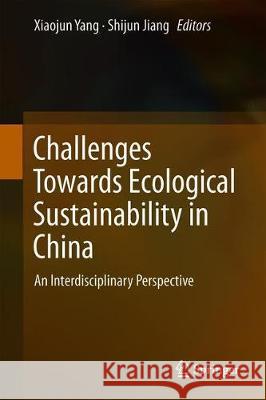Challenges Towards Ecological Sustainability in China: An Interdisciplinary Perspective » książka
topmenu
Challenges Towards Ecological Sustainability in China: An Interdisciplinary Perspective
ISBN-13: 9783030034832 / Angielski / Twarda / 2019 / 340 str.
Kategorie BISAC:
Wydawca:
Springer
Język:
Angielski
ISBN-13:
9783030034832
Rok wydania:
2019
Wydanie:
2019
Ilość stron:
340
Waga:
0.72 kg
Wymiary:
24.13 x 23.11 x 2.03
Oprawa:
Twarda
Wolumenów:
01











